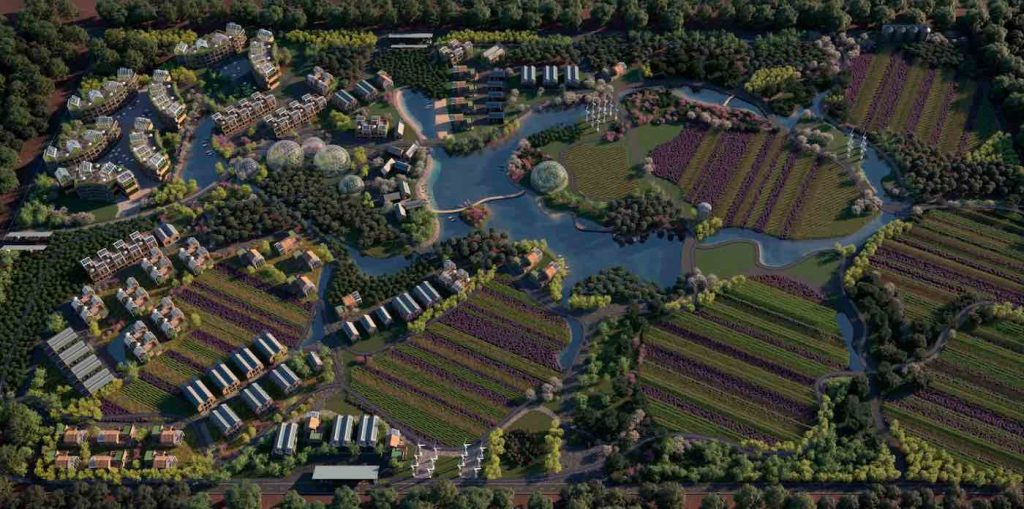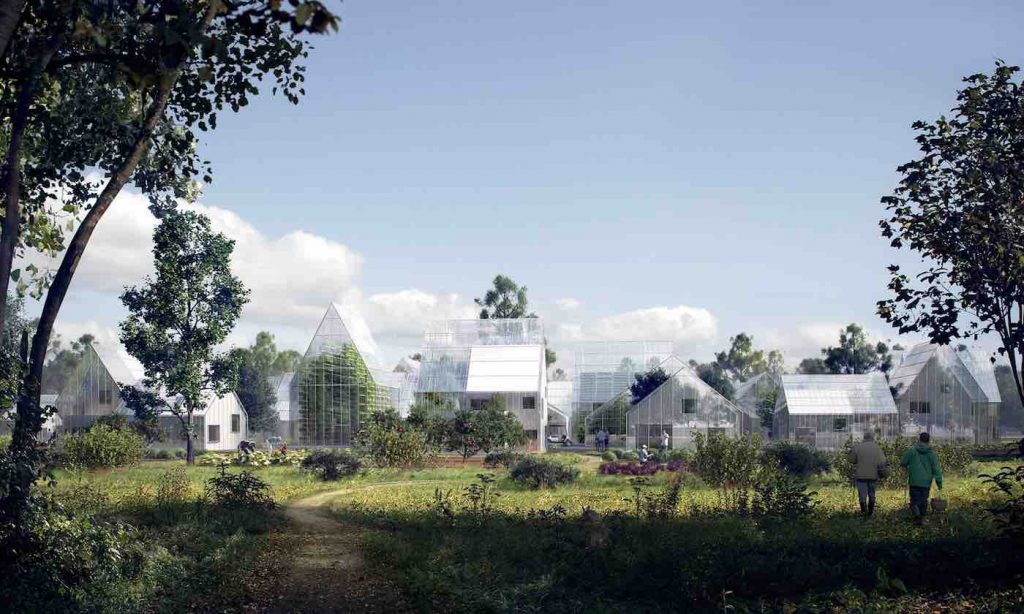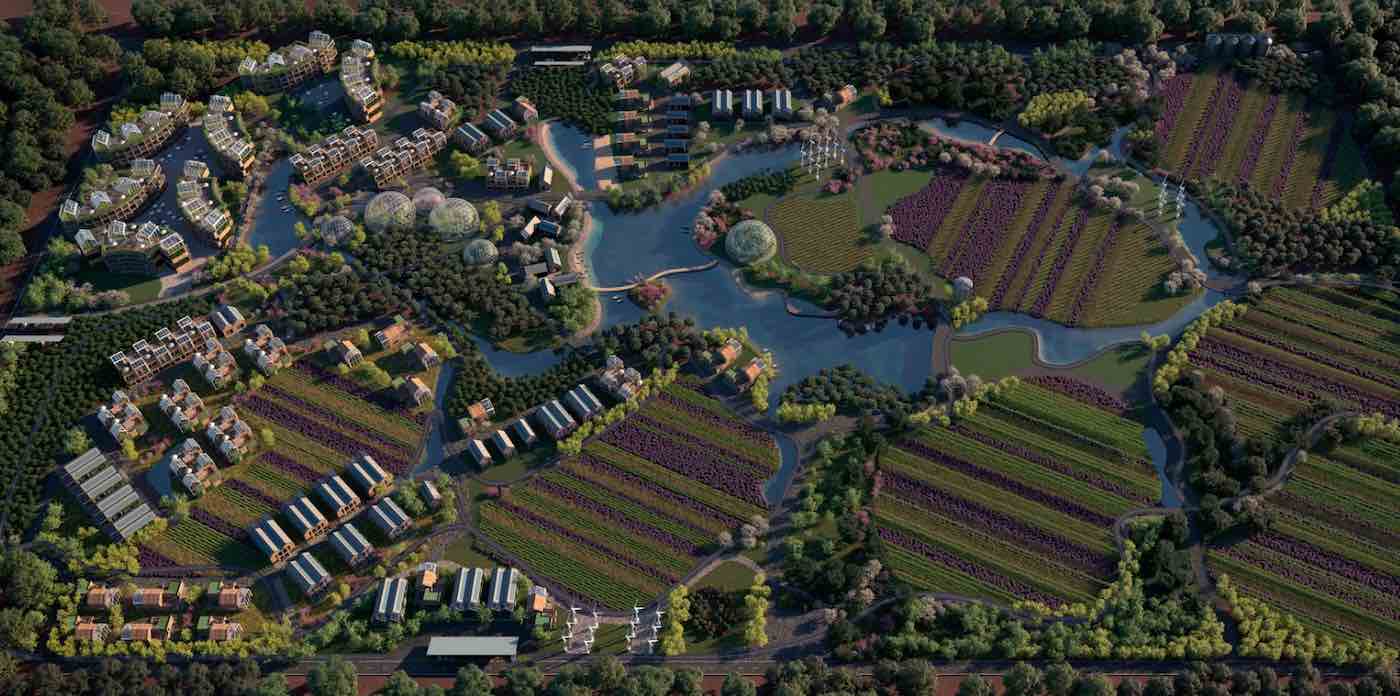An American architect has put his own money and years of struggle on the line to begin building a modern neighborhood that would generate its own power using a closed loop system that would also recycle all the waste and generate all the food.
Officials in the Netherlands have given James Ehrlich an initial green light to construct at least one eco-village 30 minutes outside of Amsterdam, and he hopes to break ground on the project sometime this year.
Ehrlich founded ReGen Villages in 2016 as a startup company intending to disrupt the way the world thinks about housing, development and transportation, and how these CO2-heavy sectors can be overhauled to create a green, self-sustaining lifestyle.
The master plan is for 200-300 homes in the town of Almere where infrastructure permits were approved in 2018.
The vision is a grand one: While incorporating entirely self-sustainable systems for waste management, water treatment, and food production, electricity would be generated through solar, biogas from food and animal waste, and geothermal sources.
Special aquaponic gardens would combine fish farming with aquatic agriculture that allow residents to cultivate a sustainable micro-ecosystem to produce fish and produce.

Human waste would be composted to feed the ecosystems, with the fish waste providing a critical source of fertilizer for the gardens.
But there are two bigger issues for ReGen Villages: “The two greatest challenges we face are financial support and political will,” the founder told the New York Times.
LOOK: Success of First 3D-Printed Home in US – 50 More Are Being Built for Poor Families

The company is trying to wrap up a funding round of €16 million in private equity investment for operating expenses needed for the first village and for “master planning the next couple of concurrent developments.”
The homes, to be situated on at least 61 acres of land in the Oosterwold District, would cost according to DutchReview magazine between €200,000 to €850,000 ($216,000–$918,000) depending on the size and luxury of the house.
Continuing the closed-loop ecosystem model, each family home will have a greenhouse attached to it for growing personal crops, and rainwater catch-and-filter systems. The energy and food systems would be managed by ReGen’s staff, but residents could also work in the communal farming systems to reduce the monthly cost of their food and energy fees, which would be charged along with their mortgages.
Build Up Some Positivity By Sharing The Good News With Your Friends On Social Media…




















